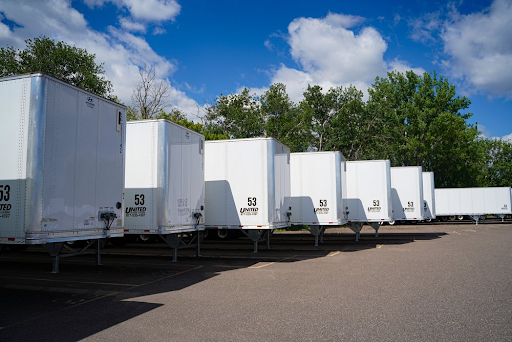How Trailer Leasing Can Enhance Your Business’s Logistics and Supply Chain
In today’s fast-paced and ever-evolving business environment, optimizing logistics and supply chain operations is crucial for maintaining competitiveness and ensuring operational efficiency. One effective strategy that businesses are increasingly adopting is trailer leasing. This approach offers numerous benefits, from cost savings to enhanced flexibility, which can significantly impact your logistics and supply chain operations.
Understanding Trailer Leasing
Trailer leasing involves renting trailers for a specified period rather than purchasing them outright. This model provides businesses with access to the latest equipment without the long-term commitment and financial outlay associated with ownership. Companies can choose from various types of trailers, including flatbeds, reefer trailers, and dry vans, depending on their specific needs.
Cost Efficiency and Financial Flexibility
One of the primary advantages of trailers leasing is its potential for cost savings. Purchasing trailers involves significant upfront costs, not only for the trailers themselves but also for maintenance and repairs. In contrast, leasing trailers typically requires lower initial payments and often includes maintenance services within the lease agreement. This arrangement helps businesses manage their cash flow more effectively, freeing up capital for other critical areas of operation.
Leasing also mitigates the risk of obsolescence. As technology and industry standards evolve, trailers can quickly become outdated. By leasing, businesses can regularly update their equipment to meet current standards without incurring substantial costs for trade-ins or resale.
Enhanced Flexibility and Scalability
Trailer leasing offers unparalleled flexibility, which is particularly beneficial for businesses with fluctuating transportation needs. During peak seasons or periods of increased demand, companies can lease additional trailers to accommodate the extra volume. Conversely, during slower periods, they can reduce their fleet size to avoid unnecessary expenses.
This scalability allows businesses to adapt their logistics and supply chain operations quickly in response to changing market conditions. The ability to adjust the number and type of trailers based on current needs ensures that resources are utilized efficiently and that the business remains agile.
Improved Operational Efficiency
Leased trailers are often newer and better maintained than older owned equipment. This can lead to fewer breakdowns and reduced downtime, which enhances overall operational efficiency. Additionally, many leasing companies offer trailers equipped with the latest technologies, such as GPS tracking and telematics, which can provide valuable insights into fleet performance and logistics.
GPS tracking, for example, enables businesses to monitor the location and status of their trailers in real time. This visibility can improve route planning, reduce fuel consumption, and enhance overall supply chain management. Telematics data can also be used to track maintenance needs and ensure that trailers are serviced proactively, further minimizing the risk of unexpected disruptions.
Simplified Maintenance and Repairs
Maintenance and repair responsibilities can be a significant burden for businesses owning their trailers. However, most trailer leasing agreements include maintenance services, which can simplify the management of these tasks. Leasing companies typically have dedicated teams to handle repairs and routine maintenance, ensuring that the trailers remain in optimal condition.
By outsourcing these responsibilities, businesses can focus on their core operations without being bogged down by the complexities of trailer maintenance. This arrangement not only reduces operational headaches but also ensures that trailers are always ready for use, thereby supporting uninterrupted logistics operations.
Strategic Partnerships and Long-Term Benefits
Partnering with a reputable trailer leasing company can offer additional benefits beyond the basic leasing arrangement. Leasing companies often provide value-added services such as driver training, logistics consulting, and specialized support tailored to your industry needs. Building a long-term relationship with a leasing partner can lead to more favorable terms, customized solutions, and a deeper understanding of your business’s specific requirements.
Furthermore, having a reliable leasing partner can enhance your overall supply chain strategy by ensuring that you have access to the right equipment at the right time. This can lead to improved service levels, better customer satisfaction, and a stronger competitive position in the market.
Conclusion
Trailer leasing represents a strategic approach to enhancing your business’s logistics and supply chain operations. By leveraging the cost efficiency, flexibility, and operational benefits of leasing, companies can optimize their transportation capabilities and respond effectively to market demands. With the added advantages of simplified maintenance and the potential for strategic partnerships, trailer leasing can be a valuable asset in achieving long-term success in today’s dynamic business landscape.
Incorporating trailer leasing into your logistics strategy can transform your operations, driving greater efficiency and enabling your business to stay ahead in a competitive environment.



